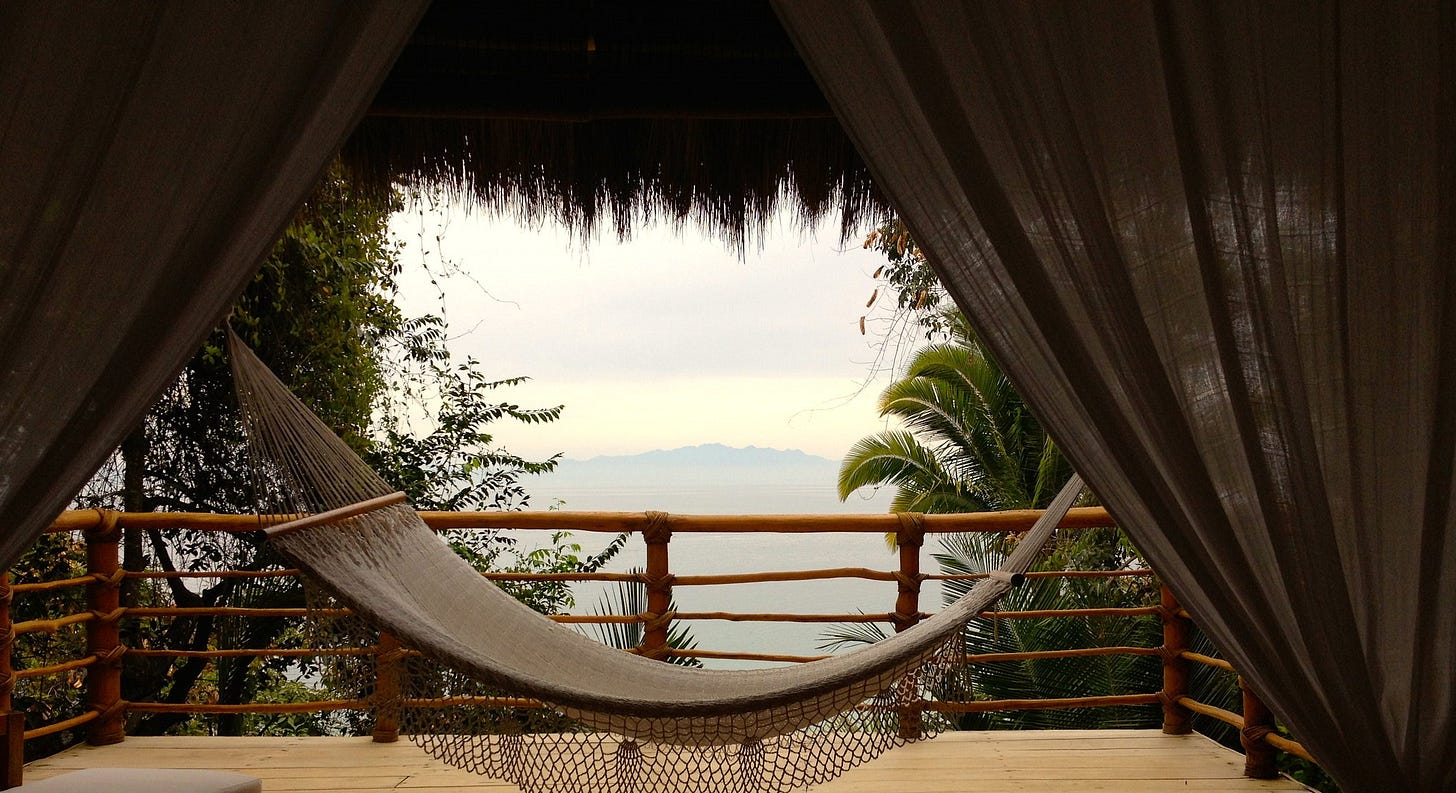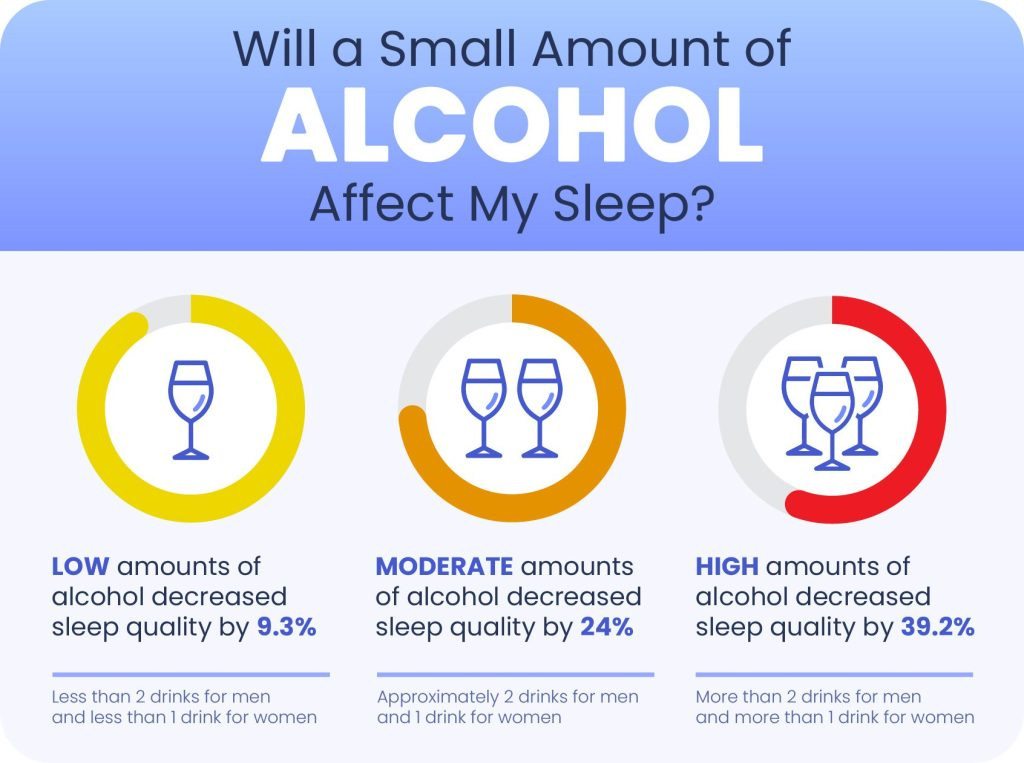Good sleep fixes most things
I used to sleep poorly, but if your sleeps sucks, your life sucks. The good news is it's not that hard to fix.

I fell asleep the other night thinking I should write a post about sleep. This is because for as long as I can remember in adult life, my sleep quality (and quantity) was poor. Until recently, so this is novel territory for me. Anyway, sleep is underrated in modernity, and clearly a symptom of a deeper sickness as we do not prioritize it. You have young people ‘flexing’ online about staying up all night working (so incredibly bleak, you’d hope they’d at least be at a concert/rave building memories). Then you have adults sharing how they’re unable to get a good night’s rest because of stress (let’s leave parents with young children out of this discussion, they’re doing their best).
The importance of sleep cannot be overstated. Beyond the immediate benefits of feeling refreshed and alert, adequate sleep plays a forgotten (likely the most pivotal) role in our overall health and well-being. Research shows chronic sleep deprivation is linked to a myriad of health issues such as obesity, diabetes, cardiovascular disease, and weakened immune function. This all manifests psychologically first, it’s the body signaling something is wrong. If you’re depressed, anxious or otherwise not feeling great fixing sleep should be the first thing you focus on. And the good news is once you fix this, most other issues fall into line or become easier to deal with. I sense many of the psych meds people take to paper over poor mental states would be unnecessary if people simply slept better.
Even busy executives like Jeff Bezos talk about the importance of getting 8 hours rest. Jeff is busier than you are, so take that off the table as an excuse for any of us. Quick clip, worth watching.
In modernity, sleep is both sacred and disdained, a remarkably sad state of affairs. Lack of sleep is definitely ruining your creativity (like too much time on your mobile device). Today I’ll give a checklist of things to work on if you’re not sleeping well, this pretty much solved the issue for me. You’ll have to do all of it though.
Stop doing ‘all nighters’ - you’re not a hero, you’re killing yourself
All-nighters aren’t a badge of honor; they’re the perfect recipe for burnout and just signal a lack of disciplined time management. They might feel productive in the short term, but lead to diminished cognitive function, impaired memory, and heightened stress. As philosopher Immanuel Kant noted, "he who is cruel to animals becomes hard also in his dealings with men. We can judge the heart of a man by his treatment of animals." Similarly, our treatment of our own bodies, including our sleep habits, reflects our well-being and how we consider the world (we’re animals too, don’t be cruel to yourself). Instead of boasting about sleepless nights, prioritize rest as the cornerstone of self-care.
Psych meds ruin sleep quality
I am now >500 days off any prescription meds and alcohol. For the first few weeks, perhaps months, I felt like my body was catching up on years of deeply non-restorative rest. The harm was palpable after distance from them. Psych meds offer relief for mental health conditions, but frequently come with the side effect of disrupted sleep patterns whether you realize it or not. Over time there’s cumulative damage which goes unnoticed. Antidepressants, ADHD meds, mood stabilizers all interfere with REM sleep, leaving the user feeling groggy and unrested in the short term and doing much worse silent damage in the long. It's crucial to work closely with your MD to find a medication regimen that minimizes these effects while effectively managing symptoms. It’s also worth re-examining any meds you were forced on as a youth but continue to take as an adult “because you always took them.” A better MD can help free you of such self-constructed prisons. I am not a doctor, so get more opinions and be honest with yourself and what you really need to function well. The medical-industrial complex thrives on learned helplessness: you’re likely way stronger than you think or were told. If that statement angers you, ask yourself why, and keep asking. An admirable personal goal for most is to be free of any daily psych meds. Most people I talk to find when they get to the right place they don’t need them, and their lives are significantly improved stepping off neurochemical treadmills.
Alcohol also affects sleep more than commonly believed
I mentioned I also stopped alcohol. While it initially induces drowsiness, it basically ensures your sleep is non-restorative. As the body metabolizes alcohol, sleep becomes fragmented, leading to frequent awakenings throughout the night. You’re ingesting a poison your body must clear itself of, after all. Alcohol also suppresses REM sleep, the stage critical for cognitive function and emotional regulation. If you’re in your 20s you might not feel the impact yet but you’re still doing damage. In your 30s the tradeoff (and day-after anxiety) become not worth it. You really only need alcohol if you’re running from yourself.
Regular gym/exercise are necessary for good sleep
Regular exercise is not only important for physical health but for sure promotes better sleep. You should be getting enough you are physically tired at the end of every day, your body should have put in the expected amount of physical work it evolved for. This likely involves going to the gym. Exercise also reduces symptoms of anxiety and depression, common contributors to sleep disturbances. As philosopher Plato once remarked, "lack of activity destroys the good condition of every human being, while movement and methodical physical exercise save it and preserve it."
Go to bed at the same time every night
Our bodies thrive on consistency and routine, and our sleep-wake cycle, known as the circadian rhythm, is no exception. Going to bed and waking up at the same time each day helps regulate our internal clock promoting deeper, more restorative sleep. Consistent bedtimes also signal to our bodies that it's time to wind down, making it easier to fall asleep and wake up feeling refreshed. As Aristotle wisely observed, "we are what we repeatedly do. Excellence, then, is not an act, but a habit." Let's make quality sleep a habit by developing and sticking to a routine. Your mood will be more consistent, anxiety lower and everything else easier to manage. If you can’t control this you probably can’t manage much else.
Stop eating junk
What we eat directly impacts sleep quality. Consuming heavy, greasy, or spicy foods close to bedtime leads to indigestion and for sure disrupts sleep. Additionally, sugary snacks and caffeine-laden beverages can interfere with our ability to fall asleep and stay asleep. On the other hand, a caffeine-free tea when ending the day can help calm you and promote a good night’s rest. You feel so good after staying away from junk food if you can do it long enough it’s actually really hard to go back.
No screens in bed, particularly cell phones close to your face
In our digital age, screens have become ubiquitous, infiltrating every aspect of our lives, including our bedrooms. However, the artificial light emitted by smartphones, tablets, and laptops disrupt our body's production of melatonin, the hormone responsible for regulating sleep-wake cycles. By banning screens from the bedroom entirely, we create a tranquil environment conducive to relaxation and rejuvenation. Instead of doom-scrolling through social media feeds before bed, embrace nighttime rituals that promote serenity, such as reading a book. There is no information you need to receive at this time that will affect your life in the slightest. Free yourself of FOMO, it’s for kids.
What’s not here: sleep apps, supplements, devices
Sleep is simple and we evolved for millions of years to do this without assistance. Adding complexity to life for things like this is a signal something has gone wrong with how you’re thinking about the world. Or, you might just be bored without sufficient direction (congrats, tbh, this is a fertile space for creativity, being bored is important). Anyway I’m not persuaded you need more apps or devices and think the category of ‘sleep tech’ is unnecessary. If you wanted to tinker and try things, great, I just think there’s so many better ways to spend time.
Wrapping up
I am someone who did not sleep well for nearly all my life, and now sleep without issue. I’m convinced for nearly everyone, if they did all of the above and still couldn’t sleep, it’s time to go see a sleep specialist. Something deeper is wrong. For everyone else, it shouldn’t be that hard to get right. And, if you take all the steps necessary for high quality sleep, it takes care of pretty much everything else health wise.





Go outside, too. As Huberman stans will surely point out, daylight (especially in the AM) does wonders for the circadian rhythm. Walk the dog, walk the kids to the bus stop, gaze eastward and remember your distant ancestors.
Exercise. Exercise. Exercise. I cannot overstate how important this is.
I've always been an active person, but I've had my off and on moments as well. Along the years it's become soooo obvious to me that if I don't have a solid routine to exhaust my body, I will struggle to fall asleep. Exercise has always been the common denominator.
I've been training for a triathlon for 6 months. Out like a light every night.
Exercise.